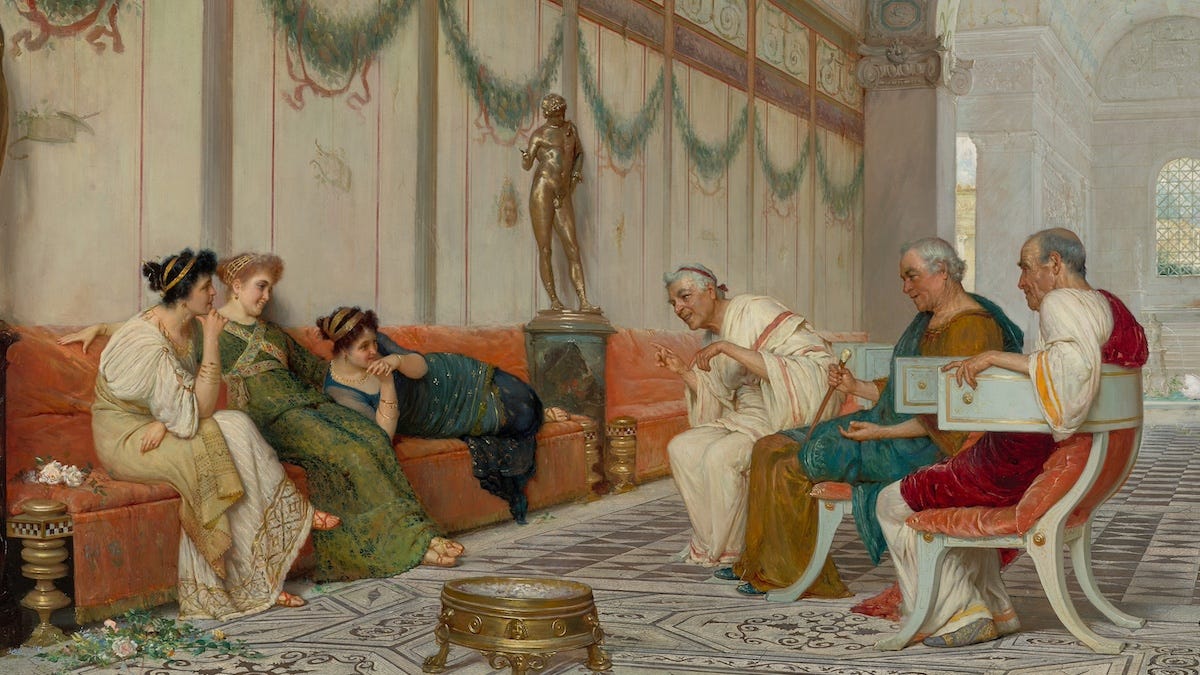In this week’s original, Featured Author Rachel Lu reviews Nadya Williams’s Mothers, Children and the Body Politic: Ancient Christianity and the Recovery of Human Dignity. While in agreement that the ancient world—and today’s world—often ignored the dignity of women, Lu asks: is there a “natural goodness” that Williams’s account too readily casts aside?
A Spoonful of Aristotle
Rachel Lu
A non-Christian might fairly ask: given their iron-clad commitment to human value, dignity, and worth, weren’t Christians a bit slow to recognize the importance of that effort? We shouldn’t engage in hackneyed generalizations about the sexism of Christendom, which did after all have some powerful queens, transformative female religious orders, and remarkable women like Hildegard of Bingen. Still, it does really seem that women’s non-maternal potentialities were chronically underestimated for a great many centuries. Why did that happen, if the Christians were so good at valuing persons in all their rich complexity?
A complete answer is beyond the scope of this review, but any reasonable answer should acknowledge that it’s taken the human race rather a long time to realize just how much women are able to do.
This Week in Sex-Realist Feminism: Consent's Limits, To Whom do Children Belong, and Sex and Peanuts
This week: Helen Joyce on the limitations of consent, Jeff Shafer on assisted reproduction and the untethered individual, and Naomi Cunningham on sex segregation and peanut butter. Plus: speaking truth to gender, motherhood's politicization, a women's college volleyball upheaval, and more!
From the Archives:
ICYMI: Nina Power on the tendency to cast blame for our current sexual politics—and a better way forward.
Sexual Politics on the American Right
Nina Power
From today’s vantage point, we can say that the sexual revolution has benefitted—above all—the male cad. It has not benefitted women and children.







I don’t like the framing of this essay as a Christian. The gospel “needs” a “spoonful of Aristotle” because something is missing? How does the author factor in the concepts of “vernacular gender” as so helpfully utilized by Mary Harrington? Women have always done so much more than being in the home. I’m not an expert in this subject area, but I can even offer the clique of the Proverbs 41 woman to say I’m confused…